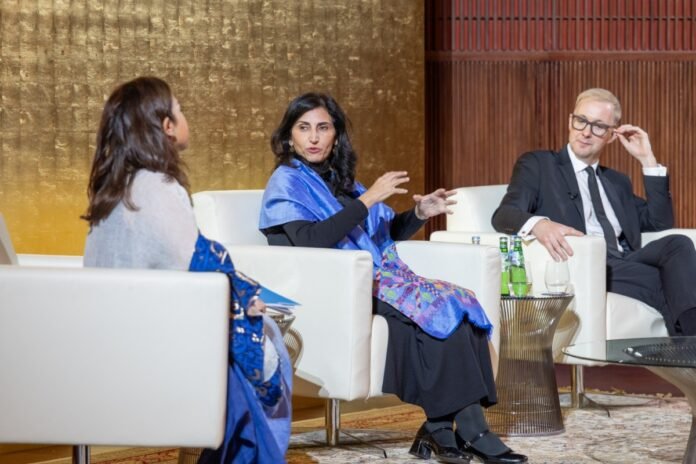Georgetown University in Qatar (GU-Q) hosted a timely and insightful event titled “International Law at a Crossroads? Recent ICJ & ICC Developments and Their Global Impact”, featuring a dialogue between globally recognized legal experts Diana Buttu and Dr. Ralph Wilde.
Held as part of GU-Q’s 20th Anniversary celebrations, the event explored how recent decisions by the International Court of Justice (ICJ) and the International Criminal Court (ICC) are reshaping global approaches to accountability—both at the state and individual levels. The conversation also examined the forthcoming ICJ advisory opinion on states’ responsibilities regarding climate change. It looked into the obligations surrounding the presence of international organizations and third states within national territories.
Moderated by Noha Aboueldahab, Assistant Professor of International Law at GU-Q, the panel tackled complex and evolving dimensions of public international law. This comes in a world marked by geopolitical tensions and urgent global challenges.
Diana Buttu, a human rights lawyer and former legal advisor in international peace negotiations, highlighted the limitations of current international legal mechanisms. “The international legal system has improved over time, but the lack of a global sovereign means we’re still bound by the will of individual states,” she said, pointing to structural gaps in enforcement.
Echoing the need for a robust international response to legal violations, Dr. Ralph Wilde of University College London emphasized the pivotal role of state compliance. “Understanding international law as Law requires recognizing how states enforce or ignore it. When one state violates these laws, it’s the collective response of the international community that matters,” he noted.
The event underscored GU-Q’s commitment to critical discourse and academic inquiry into global justice and legal accountability. It also reflected the university’s role in encouraging deeper understanding of the legal systems governing international relations. This is especially important at a time when the authority and relevance of such frameworks are increasingly under scrutiny.


